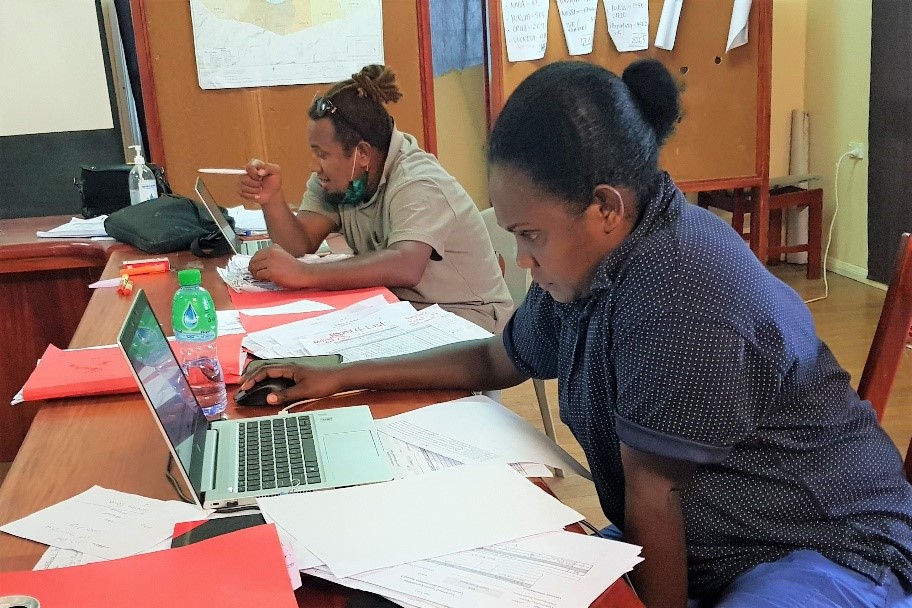Solving a data dilemma in the Solomon Islands
IFAD Asset Request Portlet
Asset Publisher
Solving a data dilemma in the Solomon Islands
Estimated reading time: 2 minutesThe Solomon Islands lie in the vast expanse of the Pacific Ocean. This remote location sheltered it from the brunt of the COVID-19 pandemic for almost two years. But when the country eventually began seeing its first cases in early 2022, lockdowns and curfews were introduced to stem infection.
At the same time, IFAD had just begun implementing its DELIVER programme in Honiara, which trains government staff on results-based project delivery and supports a new agricultural strategy. The programme follows decades of underfunding that eroded service infrastructure, agricultural research and training, and skills in data collection and use.
In response to the pandemic, the Ministry of Agriculture and Livestock (MAL) was tasked with activating emergency food relief efforts. But they faced a dilemma: after years of neglecting data collection, how do you find and feed people during a pandemic without addresses, street names or house numbers?
Food (and data) delivery
IFAD’s DELIVER staff stepped in to support immediate data needs by training a ten-person team in data collection, data analysis and reporting. At the outset, the task seemed almost insurmountable. The team lacked the most basic data and information, so they did not know how many people needed food or where these people lived.
To begin, the team created maps of Honiara to define rough delivery zones within the emergency area and arranged deliveries for these zones.
Delivery drivers doubled up as data collectors, asking food relief recipients to sign a form stating where, when and how much food was delivered. They also captured the names, phone numbers and household sizes of residents not yet on delivery lists so they could be reached in the next round.

The data team added to this by contacting local development organizations for additional household data and inviting people to come to the food relief headquarters to provide their information. This helped them build a comprehensive database of 40,000 Honiara households in just two months.
While this database is incomplete, it is the first ever database of Honiara residents. MAL will use the data to gauge the need for future food distributions. Working with partners, like the National Statics Office and Honiara City Council, MAL hopes to strengthen the data and verify it against partners’ databases.
A data-driven future
The crisis laid bare the need for lasting, relevant skills that are crucial for decision-making and impact. As emergencies become more frequent and complex, robust data and processes are essential in order to react quickly and effectively.
The data team are now applying their new skills and results-based processes in their government jobs by creating more accurate data on crops and livestock, implementing weekly staff activity tracking and creating daily data updates and visualizations for monitoring and reporting.
The DELIVER programme in the Solomon Islands is funded by the Korean Ministry of Agriculture, Food and Rural Affairs.
Publication date: 20 September 2022